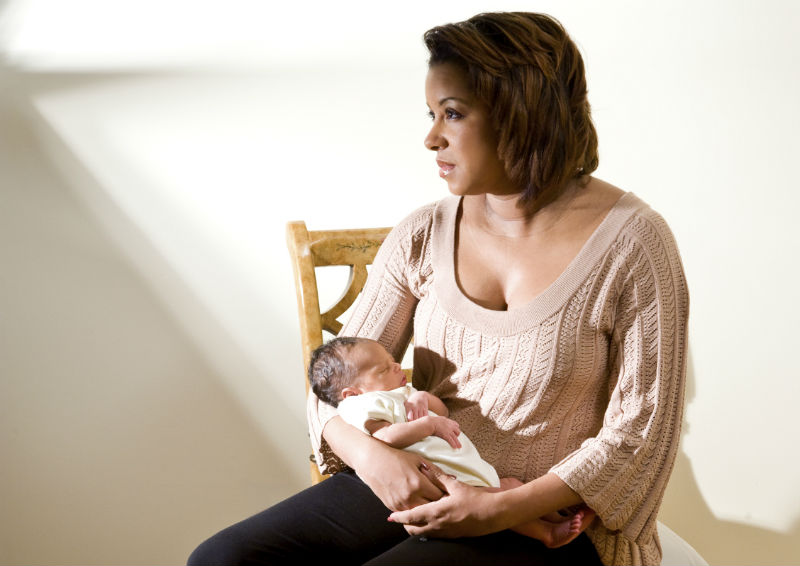When a woman becomes pregnant, she often hears about the positive aspects of becoming a new mom (such as the overwhelming sense of love), and sometimes about the stresses moms commiserate about (such as the sleepless nights or a general feeling of inadequacy).
However, talking about postpartum depression is often still considered taboo. And because people don’t generally discuss the topic, it can be a very isolating experience.
The purpose of this blog is to help mothers understand that postpartum depression is common, and there’s no shame in feeling it, admitting it, and seeking help.
What is Postpartum Depression?
We’re not talking about experiencing the “baby blues” because your life now revolves around a tiny human and many things you love have to be pushed to the back burner. Postpartum depression refers to severe depression that affects many women after giving birth.
How Common is Postpartum Depression?
Postpartum depression afflicts one in seven women. Some start experiencing symptoms while they’re still pregnant. Yet, the majority of women suffering from it aren’t diagnosed or treated for it, which is a serious concern, since many of them also experience suicidal thoughts.
What are the Symptoms of Postpartum Depression?
When a new mother is suffering from postpartum depression, she’ll typically experience the following symptoms:
– A feeling of detachment from the baby
– An ever-present feeling of sadness
– Uncontrollable crying
– Irritability
– Disinterest in activities she previously enjoyed
– A sense of hopelessness
– Anxiety
– Sleeplessness
– Shame over feeling like a bad mother
– Panic attacks
– Grief over losing the life she had before becoming a mother
These symptoms may last up to a year after the baby’s birth.
Postpartum depression is a serious issue. Left untreated, the mother may think of hurting herself or the baby. Therefore, if you or someone you love has been experiencing these feelings for several weeks, it’s crucial to get medical intervention.
What Causes Postpartum Depression?
Postpartum depression seems to be brought on by the change in hormone levels that occur after childbirth. A woman may have a greater chance of developing postpartum depression if she has experienced or experiences the following:
– Previous bouts of depression or postpartum depression
– Someone in your family has bipolar disorder
– Lack of support from family and friends
– High levels of stress
– A sick or colicky baby
Postpartum Depression in Men
While the condition is often blamed on hormones, it’s important to note that it can affect fathers too. This is because a baby drastically changes the new parents’ reality. Whether a mother or a father, common denominators are sleepless nights, financial stress, not seeing friends as often (if at all), and prioritizing the baby over everything else: previous goals, hobbies, spending disposable income, traveling, and many other aspects of life as they knew it prior to having a baby.
Postpartum Psychosis
Although rare, some new mothers may also experience what’s medically known as postpartum psychosis. In addition to the typical postpartum depression symptoms, women suffering from postpartum psychosis also experience:
– Hallucinations
– Paranoia
– Disorientation
– Insomnia
Just as postpartum depression, postpartum psychosis is treatable. This is yet another reason why it’s so important to reach out for help.
Recognizing Postpartum Depression in a Loved One
While most women with postpartum depression are too embarrassed to admit it, the signs are obvious for anyone who’s paying attention: If there’s a lot of crying, irritability, mood swings, and an apparent lack in interest in the baby, and these feelings do not get better within a few days of giving birth, you’re dealing with a loved one who’s experiencing postpartum depression.
The problem is exacerbated if the new mother is refusing to admit it or to seek help. This is understandable, due to the unwarranted stigma typically associated with mental health issues. You can help them by validating her feelings. Let her know that she’s not being judged and that what she’s experiencing is a lot more common than what she may think.
If you’re experiencing postpartum depression, we can help
At OB-GYN Women’s Center, one of our goals is to establish good relationships with our patients. For this to happen, we foster an environment of trust. This is to help you feel comfortable asking us any questions about your reproductive health and about all the feelings you’re experiencing as a new mom.
Contact us to schedule an appointment. We are happy to assist you.
How Is Postpartum Depression Treated?
If you believe you may be suffering from postpartum depression, your doctor will perform a physical exam and ask you about your symptoms. If you are diagnosed with postpartum depression, you will likely be treated with counseling and antidepressants. Some women who have milder cases of depression will only need counseling, but for women with more severe cases, both forms of treatments may be the best option.
Eating whole, nutrient-dense foods, drinking lots of water, exercising and sleeping as much as possible will also help to combat symptoms of postpartum depression. If you can, getting support from friends and family can help drastically improve symptoms.
If You or a Loved One is Experiencing Postpartum Depression, OB-GYN Women’s Centre Can Help
At OB-GYN Women’s Center, one of our goals is to establish good relationships with our patients. For this to happen, we foster an environment of trust. This is to help you feel comfortable asking us any questions about your reproductive health and about all the feelings you’re experiencing as a new mom.
Call us today to learn more or request an appointment online.


